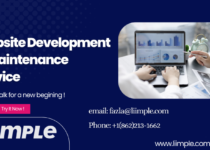How AI is Changing Digital Marketing: The Future of Personalized Advertising
Introduction: AI – The Game Changer in Digital Marketing
The digital marketing landscape has transformed dramatically over the past decade, and Artificial Intelligence (AI) is at the forefront of this revolution. From automated ad targeting to personalized content recommendations, AI is making marketing more data-driven, efficient, and profitable.
But how exactly is AI reshaping digital marketing, and what does the future hold? Let’s explore how businesses are leveraging AI to boost engagement, increase conversions, and revolutionize customer experiences.
1️⃣ AI-Powered Personalization: Marketing That Feels Human
🔹 AI analyzes customer behavior, purchase history, and interests to create highly personalized marketing experiences.
🔹 AI-driven recommendation engines (like Netflix, Amazon, and YouTube) suggest content and products tailored to each user.
🔹 Dynamic content personalization adjusts emails, website layouts, and ads in real-time based on user interactions.
Impact: AI-driven personalization increases customer engagement, loyalty, and sales.
2️⃣ AI in Predictive Analytics: Forecasting Customer Behavior
🔹 AI uses big data and machine learning to predict what customers want before they know it themselves.
🔹 AI-powered predictive analytics helps businesses understand which products will trend, when customers are likely to buy, and which marketing strategies will work best.
🔹 AI tools like Google Analytics 4 and HubSpot AI track customer journeys and buying patterns to optimize campaigns.
Impact: AI allows marketers to make data-backed decisions instead of relying on guesswork.
3️⃣ AI-Powered Chatbots & Virtual Assistants
🔹 AI chatbots like ChatGPT, Drift, and ManyChat provide instant customer support and personalized recommendations.
🔹 AI-driven voice assistants like Siri, Alexa, and Google Assistant enable voice search marketing and conversational commerce.
🔹 AI chatbots handle 80% of customer queries, freeing up human agents for complex issues.
Impact: AI chatbots improve customer experience, lead generation, and engagement
4️⃣ AI in Content Creation & Automation
🔹 AI tools like ChatGPT, Jasper, and Copy.ai generate blog posts, ad copy, and social media captions in seconds.
🔹 AI-powered content optimization tools (like SurferSEO and Clearscope) ensure high-ranking articles on Google.
🔹 AI automates social media posting, email marketing, and campaign management using platforms like Hootsuite and HubSpot.
Impact: AI saves time, boosts productivity, and enhances content marketing effectiveness.
5️⃣ AI in Ad Targeting & PPC Campaigns
🔹 AI-driven programmatic advertising automatically buys and places ads based on real-time user behavior.
🔹 AI optimizes Google Ads, Facebook Ads, and TikTok Ads for better targeting, bidding, and ROI.
🔹 AI tools like Adzooma and Revealbot adjust ad campaigns in real-time for maximum conversions.
Impact: AI makes paid advertising smarter, more cost-effective, and highly targeted.
6️⃣ AI in SEO: Smarter Search Engine Optimization
🔹 AI-powered SEO tools like SEMrush, Ahrefs, and Moz analyze keywords, backlinks, and competitors to improve rankings.
🔹 AI-driven voice search optimization tailors content for Siri, Alexa, and Google Assistant queries.
🔹 AI-powered Google RankBrain determines which content is most relevant for users.
Impact: AI makes SEO more data-driven, precise, and efficient.
7️⃣ AI-Powered Video & Image Recognition
🔹 AI tools like Synthesia create AI-generated videos without human actors.
🔹 AI-driven visual search technology (Pinterest Lens, Google Lens) allows users to search for products using images instead of text.
🔹 AI auto-generates subtitles, translations, and video recommendations for personalized viewing experiences.
Impact: AI-driven visual marketing is enhancing engagement and driving conversions.
8️⃣ AI in Email Marketing: Smarter Campaigns
🔹 AI personalizes email content, optimizing subject lines and send times for higher open rates.
🔹 AI-powered email automation tools (like Mailchimp and ConvertKit) send trigger-based emails based on user actions.
🔹 AI predicts which customers are likely to engage, reducing unsubscribes and improving conversions.
Impact: AI-powered emails generate higher engagement and revenue.
9️⃣ Challenges & Risks of AI in Digital Marketing
❌ Data Privacy Issues – AI collects massive amounts of user data, raising privacy concerns.
❌ AI Bias & Ethical Concerns – AI algorithms can unintentionally favor certain demographics, leading to discriminatory marketing.
❌ Over-Automation – Excessive AI use may make marketing feel robotic and impersonal.
❌ AI Dependence – Relying too much on AI can limit human creativity and intuition.
Solution: A balanced approach, where AI enhances but does not replace human creativity in marketing.


